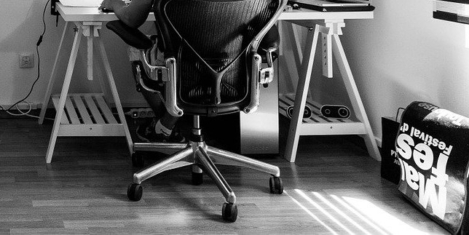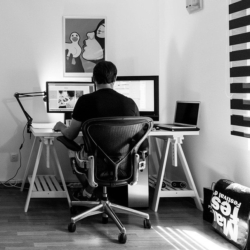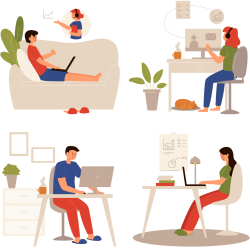To provide the best experiences, we use technologies like cookies to store and/or access device information. Consenting to these technologies will allow us to process data such as browsing behaviour or unique IDs on this site. Not consenting or withdrawing consent, may adversely affect certain features and functions.
The technical storage or access is strictly necessary for the legitimate purpose of enabling the use of a specific service explicitly requested by the subscriber or user, or for the sole purpose of carrying out the transmission of a communication over an electronic communications network.
The technical storage or access is necessary for the legitimate purpose of storing preferences that are not requested by the subscriber or user.
The technical storage or access that is used exclusively for statistical purposes.
The technical storage or access that is used exclusively for anonymous statistical purposes. Without a subpoena, voluntary compliance on the part of your Internet Service Provider, or additional records from a third party, information stored or retrieved for this purpose alone cannot usually be used to identify you.
The technical storage or access is required to create user profiles to send advertising, or to track the user on a website or across several websites for similar marketing purposes.
 Companies that have a high-level of mutual trust between their management and employees are much more likely to have a greater economic and financial performance, according to new research from Durham University Business School. More →
Companies that have a high-level of mutual trust between their management and employees are much more likely to have a greater economic and financial performance, according to new research from Durham University Business School. More →






 As pubs, shops and other workplaces re-open this week, the success of the vaccine rollout has helped employees feel much more optimistic about their return to work than they were following November’s lockdown, according to
As pubs, shops and other workplaces re-open this week, the success of the vaccine rollout has helped employees feel much more optimistic about their return to work than they were following November’s lockdown, according to 
 EMEA business leaders are out of touch with what employees want in the hybrid workplace experience, and 66 percent of organisations plan to adopt a different operating model than they had before the COVID-19 pandemic, according to a new survey from
EMEA business leaders are out of touch with what employees want in the hybrid workplace experience, and 66 percent of organisations plan to adopt a different operating model than they had before the COVID-19 pandemic, according to a new survey from 
 Research commissioned by
Research commissioned by 


 Employees would worry about the security of their job if they were to report suffering an injury in the workplace, claims new research carried out by
Employees would worry about the security of their job if they were to report suffering an injury in the workplace, claims new research carried out by 
 As the UK prepares to return to normal in the coming months and industries reopen, research from
As the UK prepares to return to normal in the coming months and industries reopen, research from 
 Remote workers are still struggling with distracting working environments, stress and an ‘always-on’ culture after a year of working from home. Egress’
Remote workers are still struggling with distracting working environments, stress and an ‘always-on’ culture after a year of working from home. Egress’ 
 Remote work, rapidly accelerated by the pandemic, is now essential to business success and worker productivity. However, as parts of the world open up and hybrid work becomes a reality, research claims that companies must invest in establishing flexible work policies and programs, and address a sizeable disconnect in trust between decision makers and employees, according to a Forrester study commissioned by
Remote work, rapidly accelerated by the pandemic, is now essential to business success and worker productivity. However, as parts of the world open up and hybrid work becomes a reality, research claims that companies must invest in establishing flexible work policies and programs, and address a sizeable disconnect in trust between decision makers and employees, according to a Forrester study commissioned by 
 New research by environmental charity
New research by environmental charity 
 Employees are more likely to resist beneficial organisational changes if they contradict historic firm values according to
Employees are more likely to resist beneficial organisational changes if they contradict historic firm values according to 








April 26, 2021
What are the limits of an employer’s duty of care to employees?
by Helen Jamieson • Comment, Wellbeing